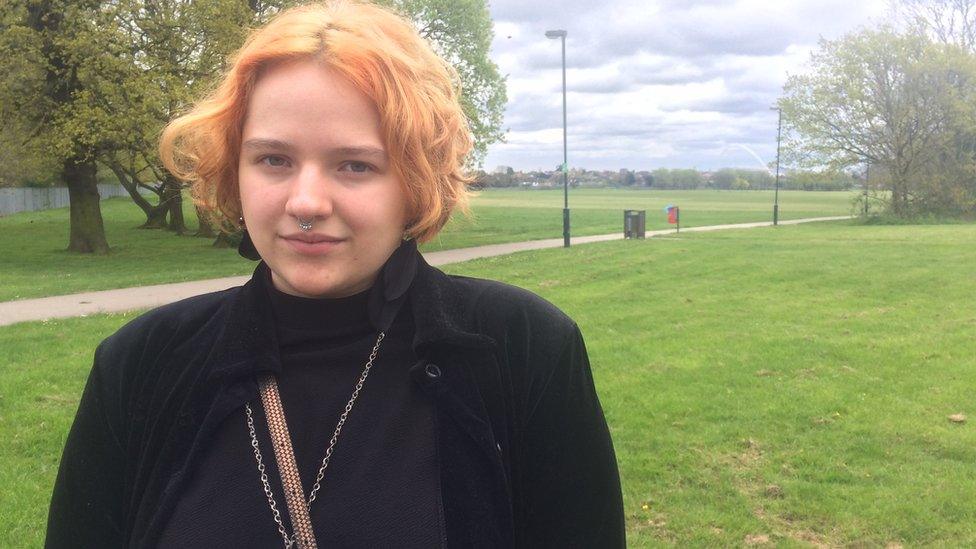Can autistic people be extroverts?
- Published
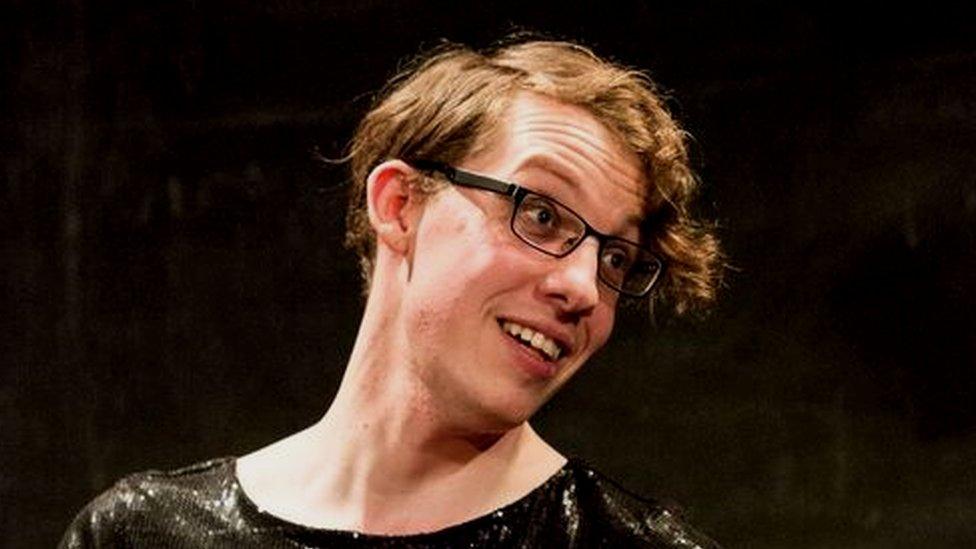
Harry Giles is a poet from Scotland
A poet who has autism explains why the condition is not a barrier to working as a live performer.
"Autism isn't just about being introverted, it's about finding ordinary social interactions difficult," says Harry Giles, an award-winning Scottish poet who has Asperger's syndrome.
"Sometimes in social situations I won't know what the rules are, or I might get them a bit wrong sometimes and get anxious."
Despite facing these challenges, Harry, who was born in Orkney and now lives in Edinburgh, earns a living performing self-written poetry on stages across the UK.
For Harry, it is more comfortable to stand under a spotlight projecting poetry to a room full of strangers than it is to sit among them - but why?
Harry was filmed for BBC Loop earlier this year
"Because onstage - I'm in charge. I set the rules," the performer says.
"It's a much calmer situation than when there is a lot of people talking at once and my brain is trying to understand what they are all saying and what all the different social relationships are."
'LGBT and autistic'
Harry's performance skills have been honed since the poet was a child.
"I've always had to be a sort of performer, because when I am feeling really anxious in conversations - I have to fake that I understand the rules," the poet says.
"I think it became natural that I took a skill I had to develop to survive and turned it into an artistic thing."
The poet says that while writing and performing is enjoyable, the business side of being in the entertainment industry can be more challenging, as it involves networking at various social events.

What is autism?
A developmental disability that affects how people perceive and interact with the world
More than one in 100 people are on the autism spectrum
People may have problems with social interaction and communication
Asperger's syndrome is a form of autism.
Source: NHS, external

"A lot of where the business of arts happens is in the pub after the event and I just can't do that stuff," Harry says.
"I can cope with one of those events a month and have to really build up my will to do it, and give myself recovery time afterwards."
'Shame and guilt'
"The more noise there is, the more my brain shuts down and I stop being able to speak; and if am getting really stressed, I am likely to have a panic attack.
"My brain does the mental equivalent of a hedgehog curling into a ball."
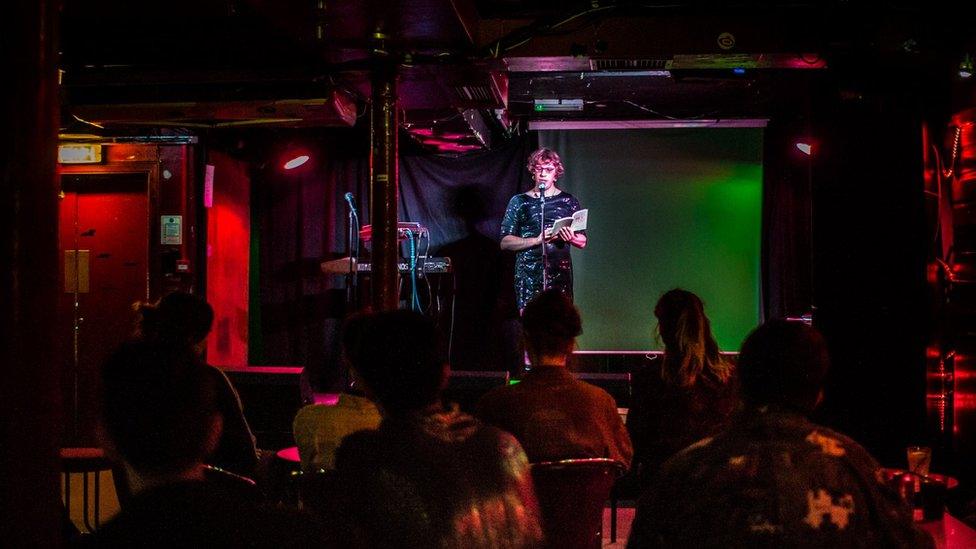
Harry performing at "Queer Theory" in Glasgow
The issue is not that Harry dislikes social events - it's just that they can sometimes be challenging.
"It's not to do with desire or preference - it's to do with ability and disability," says the poet.
'Avoid diagnosis'
For Harry it is easier to network online than in person, "because words in emails and blogs can be planned in advance".
Before signing a publishing deal with Freight Books, it was essential for the poet to build up an audience online.
But it is difficult for Harry to earn a substantial amount of money from publishing, so to earn a living, the poet must be booked regularly for live performances.
Sometimes this can involve cold calling performance venues, something that can be difficult for a person with Asperger's syndrome.
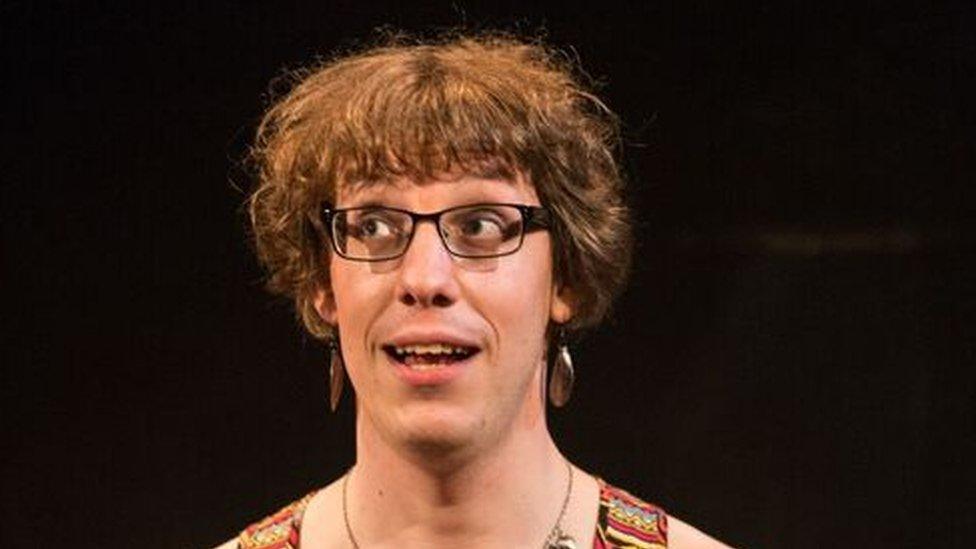
Harry says there can be a cycle of "shame and guilt" associated with having social anxiety
"I find that [cold calling] the hardest," Harry says.
"It's terrifying to phone up a stranger and say 'do you want to book me and my art?'"
'Coping strategies'
For years, Harry stubbornly avoided seeking an autism diagnosis.
"I'm independent minded and suspicious of authority," the poet says.
But since being diagnosed last year, the writer has felt some sense of relief.
"I've become more forgiving of myself," Harry says.
"There can be a cycle of shame and guilt associated with having social anxiety, but my diagnosis has stopped me feeling guilty because I know why I find things hard - it's because I am autistic."
Since the diagnosis, Harry's relationships have improved, as the poet has become more self-aware about the reasons behind certain behaviours.
"All my relationships have got better since I started thinking about myself that way, because I started noticing when I do things that are a bit weird," the poet says.
"My current partner is extremely accepting and supportive."
'Clubs and bars'
Harry identifies as being non-binary - any gender that is not exclusively male or female.
Being LGBT and autistic, Harry adds that it can be difficult to find supportive peers from either community who really understand both personality aspects.
"Clubs and bars are really important historically to the LGBT community as a space of organisation, self-discovery and identity - but they are just so inaccessible to people with autism," the poet says.
"On the other hand, autism historically has been under-diagnosed in women and LGBT people.
"This means that autism self-advocacy organisations tend to be quite male, quite straight, and not always good at understanding LGBT people."
However, the poet says that some LGBT autism groups have formed recently in Scotland, "which is really encouraging."
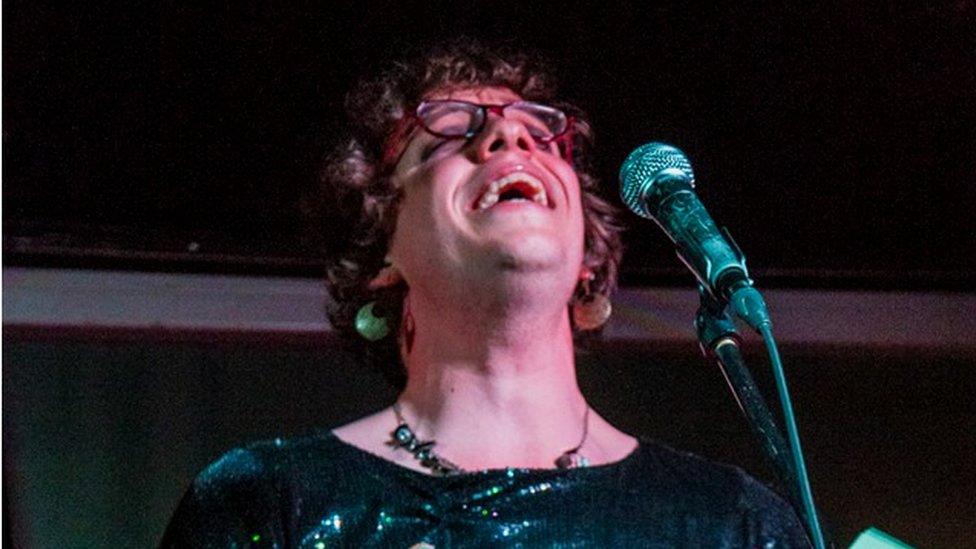
Harry says cold calling performance venues can be difficult for someone with Asperger's syndrome
As Harry has got older, the symptoms of autism have become less pronounced, as the poet has refined coping strategies that help manage the condition.
'Simple rules'
"My autism is often not really visible to people because I've found new ways of dealing with it," Harry says.
"For example, I don't find small talk hard anymore - I used to find it difficult, but I discovered there is actually quite a simple set of rules you can deploy if you learn them.
"It might not come naturally, but I can say 'och, it's a nice day' or 'och, it's a dreich day', and someone else will say 'oh, yeah it is', and I'll say 'how are you?'"
While Harry enjoys projecting poetry on the stage, the performer would not self-describe as an "extrovert", because in social situations the writer is "far more likely to be in a corner, looking at a phone".
"The majority of autistic people I've met tend to adapt quite well quite quickly to stages," the poet adds.
"But we often don't get a chance to go on a stage because people assume we will be crap at it."
"It's a difference, not a deficiency."
- Published16 August 2014
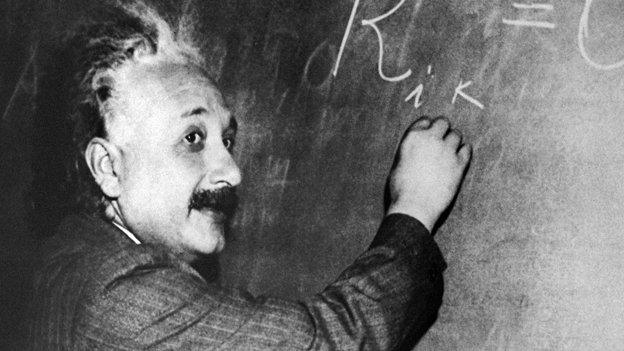
- Published31 August 2016
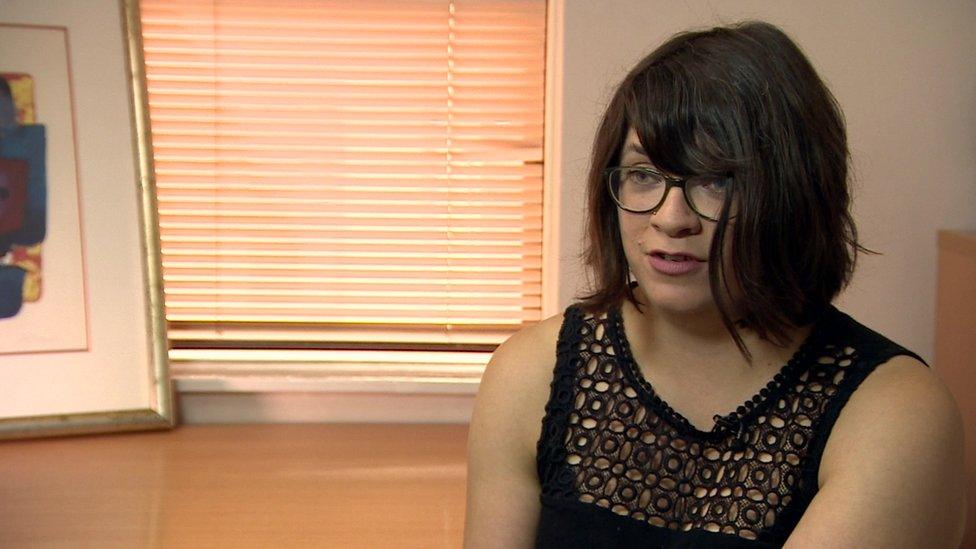
- Published25 April 2016
